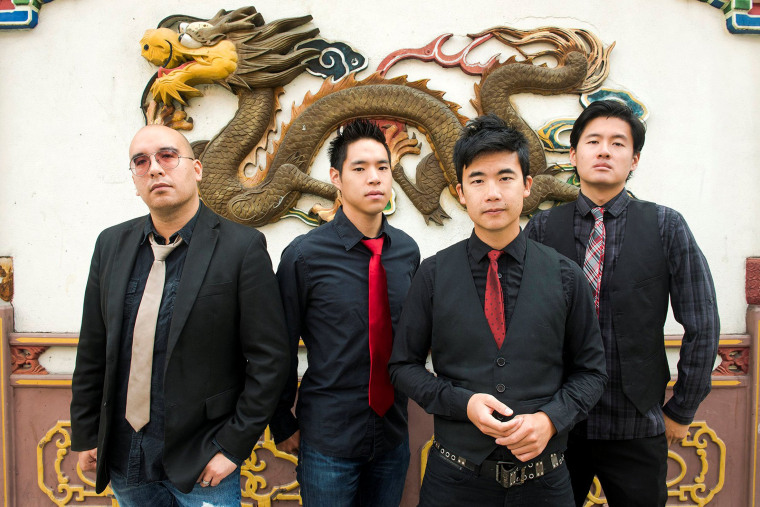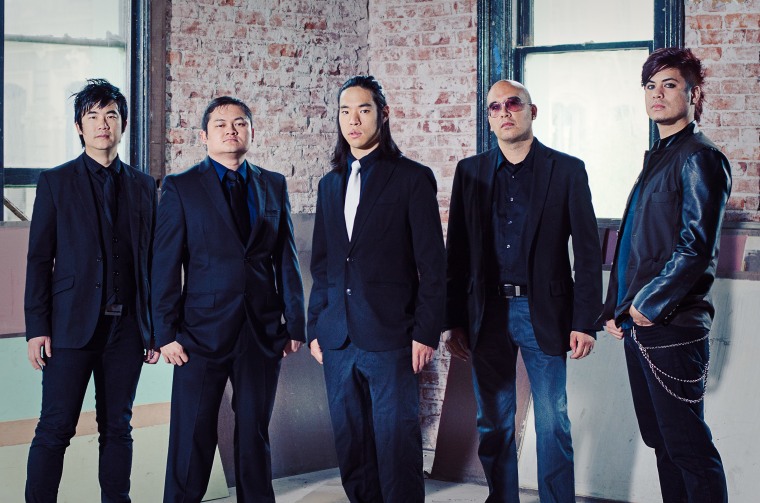They call themselves "The Slants".
They're members of a Portland rock band organized by Simon Tam, an Asian-American musician and political activist. The name, he explains, is intended "to take on stereotypes that people have about us, like the slanted eyes, and own them."
But his effort to turn a racial slur into a badge of defiance ran into trouble at the US Patent and Trademark Office. Officials there said in 2011 that the name could not be granted government protection because a federal law forbids issuing trademarks that may disparage people "or bring them into contempt or disrepute."
On Wednesday, the U.S. Supreme Court considers whether that law is an unconstitutional restriction of free speech.
The Washington Redskins of the NFL are watching the case closely. A victory for The Slants would undoubtedly require the government to restore the trademark protection it took away from the team in 2014.
After forming the band in 2006, Tam sought to register The Slants as a federally protected trademark. "It could be our slant on life, of what it's like to be Asian-Americans, our perspective. And then at the same time we could kind of address this false stereotype."

But a government examiner rejected it, explaining that it would disparage persons of Asian descent. So Tam sued and won.
The Court of Appeals for the Federal Circuit, which hears trademark cases, ruled that making decisions about which trademarks might be disparaging amounts to improper viewpoint discrimination by the government, "in order to stifle the use of certain disfavored messages."
Therefore, the court ruled, the disparagement part of the trademark law — a provision in effect since 1946 — is unconstitutional. The Obama Justice Department asked the U.S. Supreme Court to hear the case, hoping to salvage the federal law.
"The First Amendment does not require the federal government to assist those who wish to sell products or services using racial slurs, religious insults, or other disparaging marks," argues Ian Gershengorn, the acting solicitor general.
Tam is free to call his band whatever he wants, Gershengorn says. The disputed law simply prevents the musicians from summoning the resources of the federal government to help them enforce their trademark.
By the same logic, the Justice Department says, the government can decline to provide funding for certain types of art or can exclude offensive slogans from state-issued license plates.
Striking down the disparagement provision, the government says, would force it to register trademarks "containing crude references to women based on parts of their anatomy, the most repellent racial slurs and white supremacist slogans, and demeaning illustrations of the prophet Mohammed and other religious figures."
But the libertarian Cato Institute, in a brief supporting "The Slants", says trying to stamp out disparaging speech is misguided, because no public official can be trusted to neutrally identify terms that cross the line.
"Disparaging speech has been central to political debate, cultural discourse, and personal identity for as long as this country has existed," the group says, noting that the donkey became a symbol for the Democratic Party after a political opponent called Andrew Jackson "a jackass." So he put the animal on his campaign posters.
Tam's lawyers also argue that the law is so vague that the government's application is inconsistent. Registration was denied to "Have You Heard Satan is a Republican", on the ground that it was disparaging, but "The Devil is a Democrat" was allowed. Similarly, the trademark office has allowed "Fagdog" on some occasions but has denied it other times.

"The Patent and Trademark Office might as well be tossing a coin," says John Connell, Tam's lead lawyer.
A trademark is not simply permission to claim bragging rights to the name, Tam explains. "A lot of record labels will actually not sign you or work with you unless you have a registered trademark."
Band members will be in the courtroom to watch Wednesday's argument. To mark the occasion, they've recorded a new album: "The Band Who Must Not Be Named."
